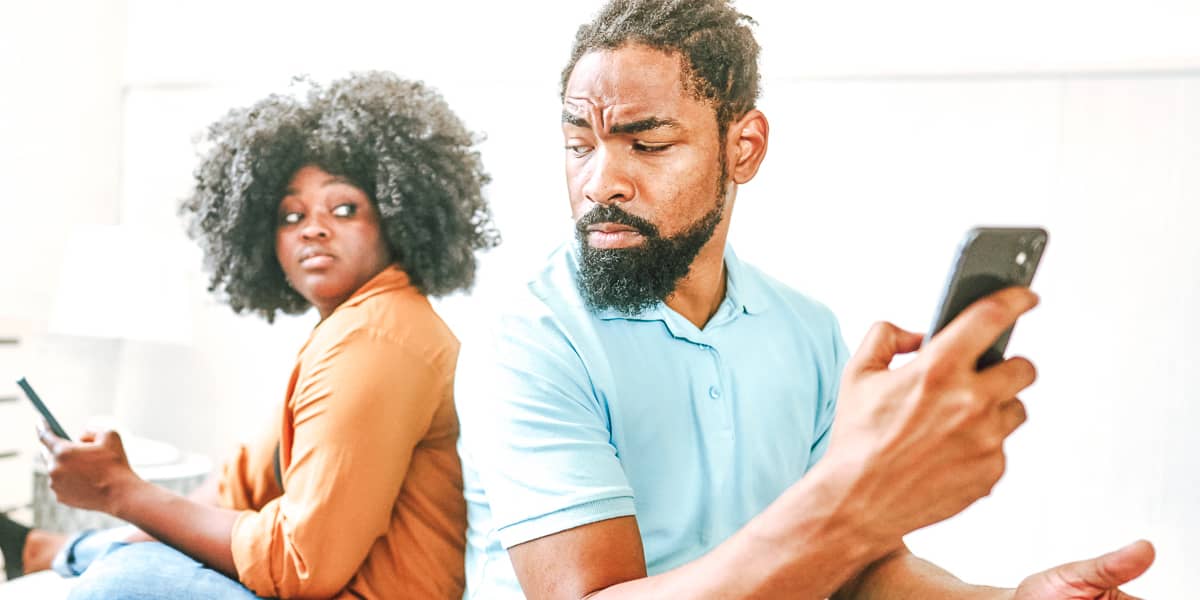Cancel Culture’s Impact on Mental Health and Relationships

- What is cancel culture?
- What's the point of canceling someone?
- How cancel culture impacts society
- How cancel culture harms our mental health
- Could the cancel mentality contribute to divorce?
Your digital life often impacts your real life, from the “friends” on your social media – many of whom you have never met in person – to how you mindlessly scroll through your social media feed when you’re bored.
It’s easy to pick and choose digitally. With one firm swipe, you can effectively remove something – or someone – from your digital purview. Block them? Mute them? No problem!
But what happens when cancel culture becomes so pervasive that you find yourself “canceling” real people from your life instead of learning how to deal with them fairly and genuinely? And what happens if you’ve been the subject of someone’s “canceling” or public shaming without having had a chance to understand what happened or the opportunity to fix it?
Cancel culture: What is it?
At its core, cancel culture is a kind of social ostracization for perceived mistakes or wrongdoings. And while group backlash and boycotting have been around for ages, the digital version has become a prevalent – and very effective – way to exact a type of mob justice.
Because of its broad and often anonymous reach, social media diminishes the real human suffering behind online relationships that people endure as a result of digital bullying and isolation. It can cause a great deal of emotional and mental harm not only to the person being canceled but to anyone who is afraid of being authentic and voicing an opinion at the risk of being socially targeted.
What's the point of "canceling" someone or something?
The mechanism of cancel culture and who it’s meant to serve depend on context.
For instance, it can be an effective way for groups or individuals to shine a light on a social faux pas or harmful behavior in an effort to make others accountable. For instance, the #MeToo movement was a form of cancel culture that empowered victims of sexual abuse in the workplace. The target may be a public figure or company justifiably being taken to task for something they’ve said or done.
But on a more personal level, it can also effectively close down communication between people for far lesser infractions. It can invite a kind of mob bullying that’s psychologically and emotionally harmful to the targeted person.
Who does cancel culture serve in the long run? Unfortunately, normalizing it does little beyond furthering division and misunderstanding. Don’t like something someone said or did? Canceling them is far easier than the hard work of trying to communicate with them or understand their words or actions and finding ways to bridge the gap.
How does cancel culture impact society?
Humans are innately flawed animals – we make mistakes, have unpopular opinions, and say things we later regret. But we can also have a dialogue, express or explain our opinions, and try to resolve misunderstandings.
Unfortunately, cancel culture can circumvent earnest attempts to resolve misunderstandings. It can inhibit someone from expressing their opinion for fear of social backlash. It can overshadow genuine conversations, preventing us from better understanding each other.
How cancel culture harms our mental health
As social creatures, our mental and emotional health is greatly affected by the social framework around us.
Cancel culture can make you afraid of being your true self. You may fear saying or doing something “wrong” and being isolated for it.
The threat of being canceled can breed anxiety and a perpetual sense of walking on eggshells. You may feel pressured to conform and fit into social norms you don’t necessarily agree with to save yourself from bullying.
Could the cancel mentality contribute to divorce?
Think about your last argument with your partner or spouse. How open were you to hearing the other person’s side? Did one of you storm out, effectively “canceling” the conversation? Have you experienced more blame and conflict in your relationship over the past few years?
Relationships don’t exist in a vacuum. They often mirror things going on in society. As social norms become more derisive and negating, it can make it easier for these behaviors to leak into your personal relationships and even become a contributing factor for divorce.
What can you do to reduce the effect of cancel culture in your personal relationships?
- Take time out from social media. Without the constant banter of blame and put-downs, you can reset and get a better sense of what normal interaction is. When you go back, you may realize how toxic it has been to your mental health.
- When you do post, do so mindfully. Don’t get swept up in emotional online debates and bashing. Give yourself time to pause and reflect. If you still feel compelled to post, how you express yourself will be different than if you reacted during a heightened emotional response.
- When communicating with others online or in person, make it a priority to maintain open dialogs that respect each others’ perspectives.
- Seek professional help. Our current social climate can strain anyone’s mental health these days. If you’re struggling, therapy can be a safe place for expression and offer coping tools and strategies to navigate this toxic “new normal.”
In a world eager to judge, it’s important to remember that our differences are what make it an interesting place. While pervasive cancel culture has influenced much of our interaction with each other, awareness of it can mitigate its influence in your own life and relationships.
Has your relationship become tainted by today’s toxic digital atmosphere? You’re not alone. At Hello Divorce, we offer a tribe that welcomes you wherever you are. Find out more by exploring our website and our Facebook and Instagram profiles or by scheduling a free call.



